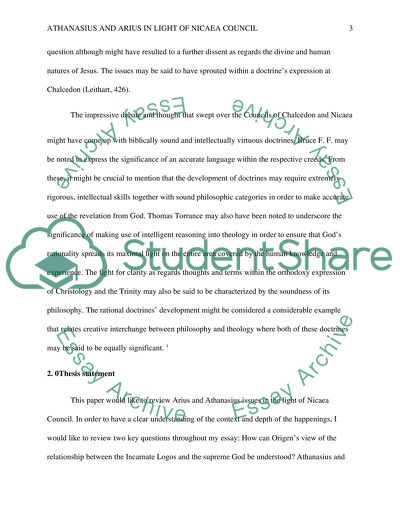Cite this document
(“Athanasius and Arius in light of Nicaea council Research Paper”, n.d.)
Retrieved from https://studentshare.org/religion-and-theology/1398498-athanasius-and-arius-in-light-of-nicaea-council
Retrieved from https://studentshare.org/religion-and-theology/1398498-athanasius-and-arius-in-light-of-nicaea-council
(Athanasius and Arius in Light of Nicaea Council Research Paper)
https://studentshare.org/religion-and-theology/1398498-athanasius-and-arius-in-light-of-nicaea-council.
https://studentshare.org/religion-and-theology/1398498-athanasius-and-arius-in-light-of-nicaea-council.
“Athanasius and Arius in Light of Nicaea Council Research Paper”, n.d. https://studentshare.org/religion-and-theology/1398498-athanasius-and-arius-in-light-of-nicaea-council.


